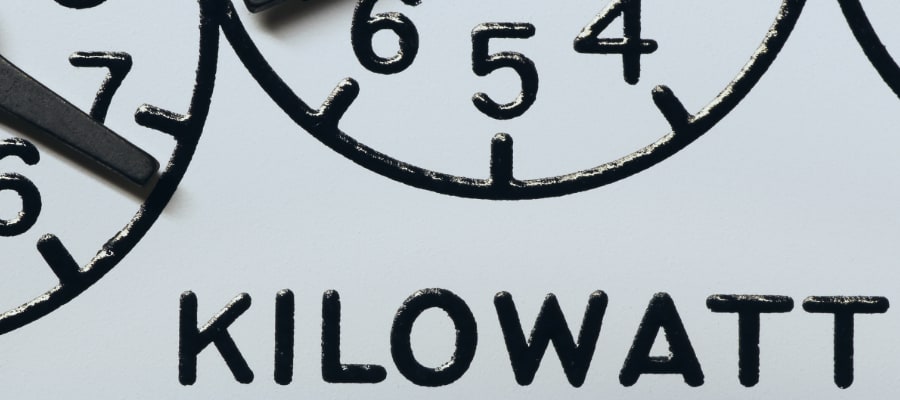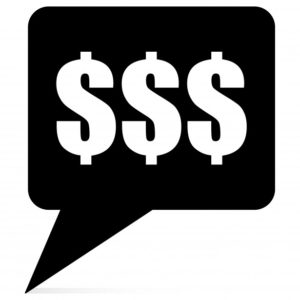 Air purifiers are becoming more and more popular as people experience improvements in health and air quality. Sometimes convenience comes at a price. Will running an air purifier increase your energy bills?
Air purifiers are becoming more and more popular as people experience improvements in health and air quality. Sometimes convenience comes at a price. Will running an air purifier increase your energy bills?
Cost of Running an Air Purifier
 Air purifiers improve air quality by reducing dust and dander in the air and removing toxins and allergens, making it easier to breathe.
Air purifiers improve air quality by reducing dust and dander in the air and removing toxins and allergens, making it easier to breathe.
Before purchasing an air purifier, you may want to consider all the immediate and long-term costs. Along with the initial price of the air purifier and its spare parts (including replacement filters), you may want to calculate the increase in your electric bills.
Though manufacturers focus on energy efficiency, it’s best to do your research on the costs of running an air purifier in your home. This guide will cover the factors involved, how to calculate the energy cost and examples of electricity consumption for various types of air purifiers.
The Short Answer – It Depends
Energy consumption can vary between air purifiers, depending on the efficiency of the appliance, the components included, and the power needed to run the fan.
As we cover in our article Do Air Purifiers Work, most air purifiers use a fan to circulate the air in the room through a filtration device. The power required to run the fan is a significant factor in each model’s energy usage. However, air purifiers using more power may be more effective and able to handle larger rooms. It can be a matter of finding the right balance for you. We created an article to help you select the right air purifier you might want to read.
The cost of your electricity usage varies depending on where you live and on the prices set by your local electricity supplier. Visit this chart by the US Energy Information Administration for average electricity prices in your area. Check your energy bills or contact your electricity provider specific prices.
Finally, the amount of energy your air purifier will use depends heavily on the hours per day and days per year the appliance will be running.
Here are a few simple formulas to help you calculate the cost of using an air purifier in your home and decide whether the benefits will be worth the cost.
How to Calculate the Energy Consumption of an Air Purifier
 To calculate the cost of running a particular appliance, start with known numbers. Though there are variations you won’t be able to predict, starting with the right information will help you get close to an accurate calculation.
To calculate the cost of running a particular appliance, start with known numbers. Though there are variations you won’t be able to predict, starting with the right information will help you get close to an accurate calculation.
In order to calculate the annual cost of electricity from running an air purifier, you’ll need to know the purifier’s wattage and the number of hours per year you’ll have it switched on.
First, find the wattage of your air purifier in kilowatts (kW). If the product specifications provide the wattage in watts (W), divide this number by 1,000 to get kilowatts (kW). If, for example, the LEVOIT LV-H132 product specifications state that maximum wattage of the appliance is 28W, or 0.028kW.
Next, you’ll need to predict how many hours per day and days per year the air purifier will be switched on. Most air purifier manufacturers recommend leaving the appliance turned on 24/7. However, some people may choose to only switch it on while they are in the room, at night while they sleep, when they leave the house. This an individual choice that will make an impact on your calculations. Multiply the wattage of the air purifier by the number of hours per day you intend to have it on and running. Then multiply the resulting figure by the number of days in the year you intend to have it running. This will give you the kWh/year energy consumption.
In this example, I predict that I will switch on my air purifier every night when I’m asleep, for about 10 hours per day. However, I frequently travel, so I’ll subtract four weeks, or 28 days, of, leaving 337 running days per year. According to these calculations, my air purifier’s kWh consumption = 0.028kW x 10h x 337d = 94.36kWh every year.
Finally, to calculate the yearly cost of your air purifier, multiply the yearly kilowatt-hours used by the hourly cost of your electricity. Be careful to convert cent values to dollars to avoid confusion.
If, for example, I pay 15 cents, or $0.15, per kWh, then my cost per year = 94.36kWh yearly x $0.15 per kWh = $14.15 yearly (rounded to the nearest cent).
To recap:
The cost of running an air purifier in $ per year = (wattage in kW) x (hours used per day) x (days used per year) x (cost per kWh in dollars)
Types of Air Purifiers and Electricity Usage
To give you a better idea of the energy used by air purifiers, we’ve taken a closer look at some of Amazon’s best selling models. You may be surprised by exactly how low the electricity usage is for most models.
HEPA Air Purifier:
HEPA models are among the most effective air purifiers, but they may use more electricity than other types because they include a powerful fan to circulate air through an advanced filter. Find out more about what makes them so effective here. [link?]
However, this model by Levoit has been engineered to be more energy efficient and demands surprisingly little electricity.
LEVOIT LV-H132 True HEPA Air Purifier for Home
Max wattage: 28W

Air Ionizer:
Ionic Pro 90IP01TA01W Turbo Ionic Air Purifier
Max wattage: 10W

Combined HEPA, UV-C, and Ionic Air Purifier:
SilverOnyx Air Purifier with True HEPA Carbon Filter, UV Light, Ionizer
Max wattage: 24 watts

Electricity Usage of Air Purifiers vs Other Appliances
Finally, we would like to give you a better idea of how much energy air purifiers use. From the examples above, we can conclude that most models use around 20 to 30 watts. Compare this to the average wattage of other common home appliances.
A medium-sized window air conditioning unit consumes 900W, or about 30 times more power than a powerful air purifier.
A small desk fan set to high uses up to 35W, which is more than some powerful HEPA air purifiers.
A 22-inch computer monitor uses up to 18W, which is in the same consumption range as many air purifiers.
Did you notice anything about these numbers? That’s right, using an air purifier probably costs less than you expected. You could use an air purifier that costs less to run than a small desk fan.

